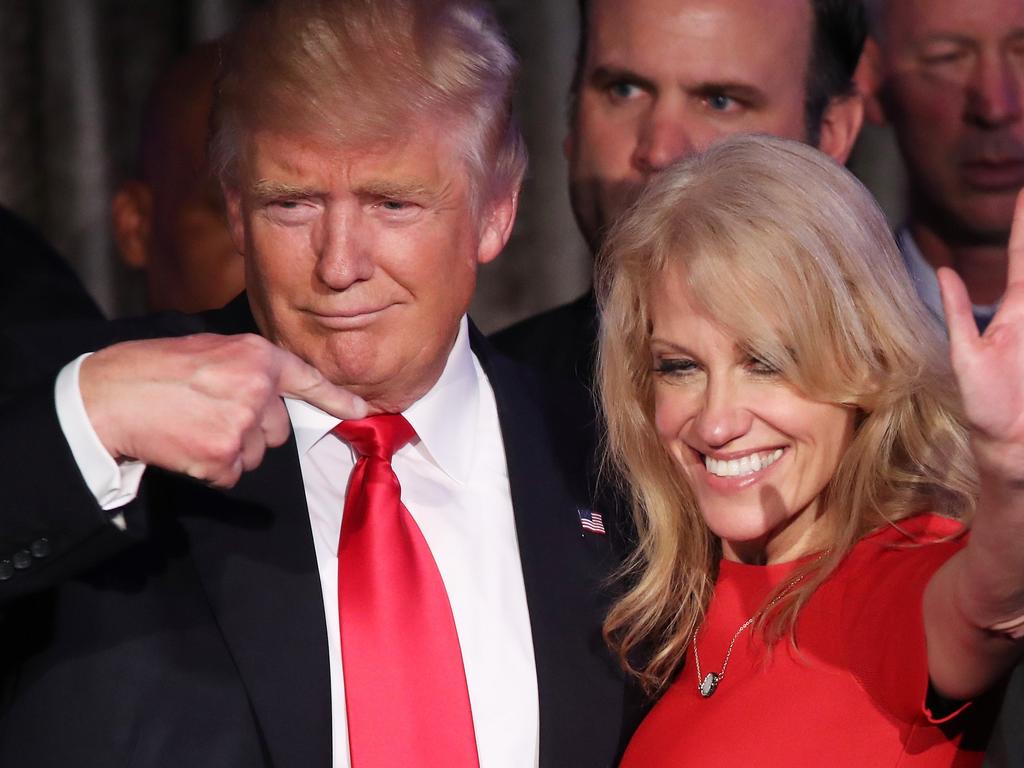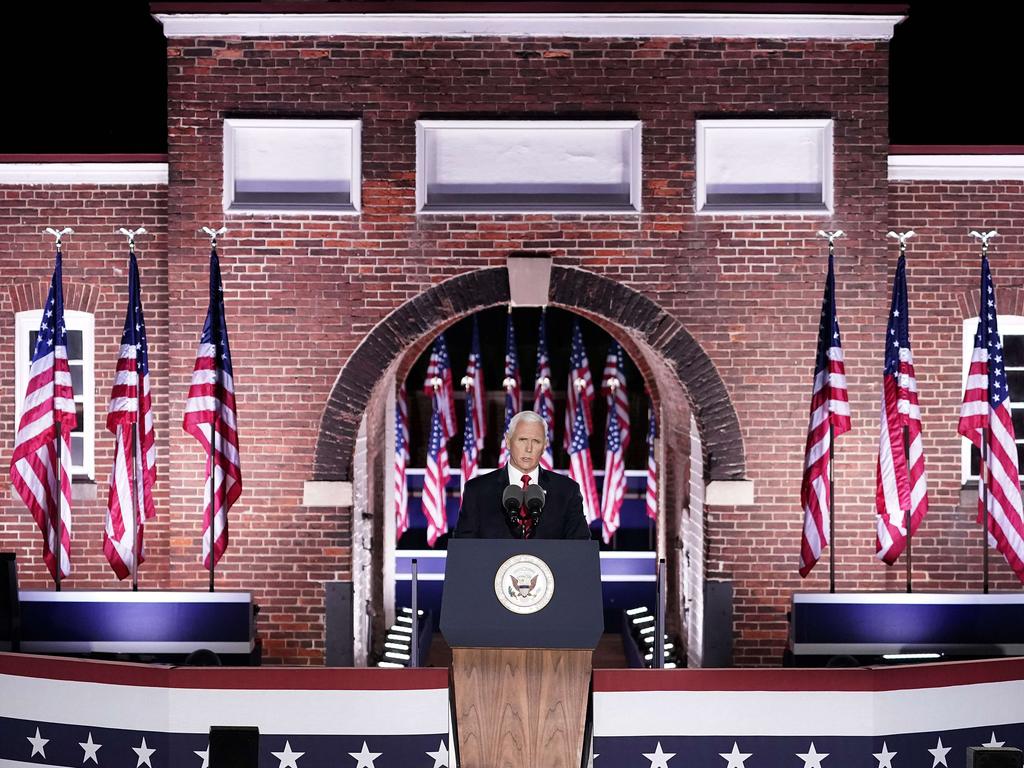Instead of ostentatiously hiring and firing ambitious young entrepreneurs, he has been theatrically deploying the rather more expansive powers of his present job: issuing a presidential pardon to a reformed bank robber, conducting naturalisation ceremonies for newly minted American citizens and receiving the gratitude of hostages freed from various regimes, all in the stately surroundings of the White House.
Democrats have complained that using the presidency – and federal property – to promote his campaign is an abuse of his office. But the thin line between the political and presidential roles of the American chief executive has long been eroding and the Trump presidency has simply erased it completely.
In between the game show antics, the convention has heavily featured the Trump brand. Each night members of the first family – Donald Jr, Eric, Tiffany, Ivanka – have offered paeans to the patriarch, though Melania’s traditional first lady address was noticeably less fawning than the others.
But it wasn’t all Trump. Indeed one of the most striking things about this week was that, despite media efforts to portray the Republican Party as reduced to a Trump cult, an impressive range of talent was on show. Tim Scott, the first African-American to serve in both the House of Representatives and the Senate, gave a powerful speech that implicitly and explicitly challenged the assertion that the party in particular and the United States in general is a haven of white supremacy. Nikki Haley, former ambassador to the United Nations and a daughter of Indian immigrants, did the same. And speakers such as Rand Paul, the anti-war senator, Daniel Cameron, the brilliant (and again, African-American) Attorney-General of Kentucky, and a succession of regular Americans, from a Maine lobsterman to a Wisconsin dairy farmer, emphasised a diversity of thought and background in the party that is often ignored by the media.
This juxtaposition of the Trump personality with the more diverse and intellectually vibrant conservative movement posed what may be the largest of the political uncertainties as the election approaches. Whether or not Mr Trump can overturn Joe Biden’s opinion poll lead, what kind of Republican Party will emerge from the rolling national melodrama-cum-psychotherapy session that politics has been for the past four years? Will Trumpism survive Trump, or will the party revert to the more conventional conservatism that has defined it since Ronald Reagan?
Much will depend of course on November 3. If the president is defeated, the case for a radical break will be strong. But win or lose, it’s more likely than not that the party has been permanently changed.
In the 40 years between Reagan’s and Trump’s first runs at the Republican nomination, the party was a robust coalition of three groups: religious conservatives concerned mostly with fighting the steady advance of secularist modernism into public life; free-market ideologues in the Milton Friedman-Margaret Thatcher mould, committed to deregulation, small government and untrammelled global movement of capital, goods and labour; and national security hawks, eager to assert American global primacy through strong defence and, if necessary, force.
Depending on the shifting political context, these factions could draw on the support of a wider electorate sufficient to enable the party to win elections. But these paths of Republican thought have all run into the sand, and the links between them have irrevocably broken. The political wing of evangelicalism has failed to stop the advance of liberal secularism. The backlash against globalisation has forced a rethink of the case for unbridled capitalism. Repeated foreign policy setbacks in the 21st century have fatally undermined the hawks.
Mr Trump’s win sprang from a brilliant recognition of these changed political circumstances. His strident populist nationalism rejected the nostrums of conservative globalists and the costly and bloody expansionism of neo-conservatism. And despite his own seamy personal background he managed to present himself as the champion of disaffected religious conservatives.
This Republican populism is unlikely to be dethroned even by a Trump defeat in November. Given that it is the president’s perceived failures over COVID-19 that are widely credited for his present problems, the search is already on for a populist nationalism that won’t be crippled by association with governing incompetence.
There is growing interest in Boris Johnson’s success in forging a coalition of working-class voters with traditional conservatives around a reassertion of national identity and a de-emphasising of market solutions to everything. Watch for names such as Josh Hawley, the bright young senator from Missouri, Tom Cotton, a senator from Arkansas, as well as Mr Scott, to begin to flesh out this conservatism for the 21st century.
What’s clear is that there will be no going back to the pre-Trump Republican Party. The challenge and opportunity, whether it comes in November or later, will be to find someone as accomplished as the incumbent at promoting this new conception of conservatism as he is at promoting himself.
The Times








Donald Trump the reality TV star has been very much on display at the Republican National Convention all this week. Forced to stage the quadrennial political extravaganza on the small screen because of the pandemic, the man who had perhaps his greatest commercial success with The Apprentice has taken full advantage.